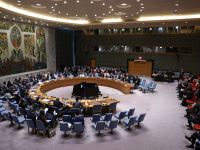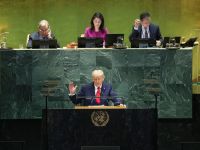After almost 11 uninterrupted years in office, Isa Kalantary, Iran’s agriculture minister, is stepping down. He does so at a time that legislation is being considered by the country’s parliament, which, if approved, will effectively merge responsibilities held by the Ministry of Construction with those of the Ministry of Agriculture. This will reverse a decision made 12 years earlier to transfer from the agriculture ministry to the construction ministry those departments which deal with animal husbandry, poultry, fishing, and marine resources.
Speaking to Resalat, Kalantary expressed his support for this latest move. “Presently, the Ministry of Construction does not have anything to do but handle a section of agriculture, and the Ministry of Agriculture has nothing to do but to handle another section of agriculture. Both the ministries are in the agricultural sector. Therefore, nothing would change if a single managerial body were to manage the two sections—it would be simply ideal for the farmers. Along with that, planning will be more integrated, there would be fewer shortcomings, development would be easier, and there would be more profit on investments,” he said.
According to Kalantary, the Ministry of Construction had proven inept in achieving the Iranian revolution’s goal for self-sufficiency in food production. Malnutrition is rife in Iran, he stated, and this had less to do with the amount of calories being consumed per capita, and more to do with the balance of the Iranian diet. Since the 1979 overthrow of the shah, the annual consumption of red meat per capita has decreased from 14 kilograms to 10 kilograms. However, the direct and indirect consumption of wheat per capita has increased from 180 kilograms to more than 220 kilograms, and the per capita consumption of rice increased to 40 kilograms per annum. Meat products have been the responsibility of the Ministry of Construction and products grown off the land have been the responsibility of the Ministry of Agriculture.
But self-sufficiency is not only a function of the country’s ability to produce the goods, Kalantary noted. “Generally speaking, self sufficiency in the agricultural sector will be realized when the people choose whatever they want to eat and have the purchasing power to obtain it,” he said.
The merging of the two ministries will not provide any immediate solution to Iran’s food supply problem, Kalantary said. Nonetheless, the government is responsible for distributing per day 40 grams of protein per capita, which is equivalent to 150 grams of meat, he added. This would mean an increase in per capita consumption of meat to more than 50 kilograms a year, which is five times higher than the current consumption rate.
“The government should improve the purchasing power or improve the nutrition diet by paying subsidies,” Kalantary said.
“There is of course a third alternative, which is to admit that we are a poor country and cannot afford to eat more, like the people of many other countries who are in the same situation,” the agriculture minister added.
In his interview with Resalat, Kalantary bemoaned the difficulties encountered by the agricultural sector in attracting investment. With an annual turnover of 15-20 percent, interests in the agriculture sector cannot compete with those in industry ad commerce, which frequently report turnover rates of four months and profit margins in excess of 70 percent, he said. “How is it that the commercial sector is more profitable than the agriculture sector, despite paying 40 percent interest rates?” he asked.
Kalantary expressed his concern about Iran’s deepening water shortage, which he said is being experienced in most regions of the country. More than 50 percent of the aqueducts have already dried up, he said, and the farmers have been granted permission to deepen existing wells, thus leading to a substantial deterioration in water quality.
Asked by Resalat as to what was his most difficult recollection during his term in office, he said: “My most bitter memory is of the time when I visited the drought stricken regions last year and saw the hungry children of the farmers running barefoot after the water tanker in order to have a glass of water.”
Nonetheless, he expressed his satisfaction at his ministry’s success in raising wheat output during his tenure. Over a 1-year period, the average harvest per hectare increased from 1,940 kilograms to 3,400 kilograms, despite the droughts that occurred over the period. – (Albawaba-MEBG)







